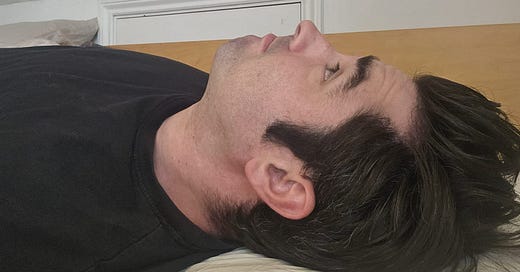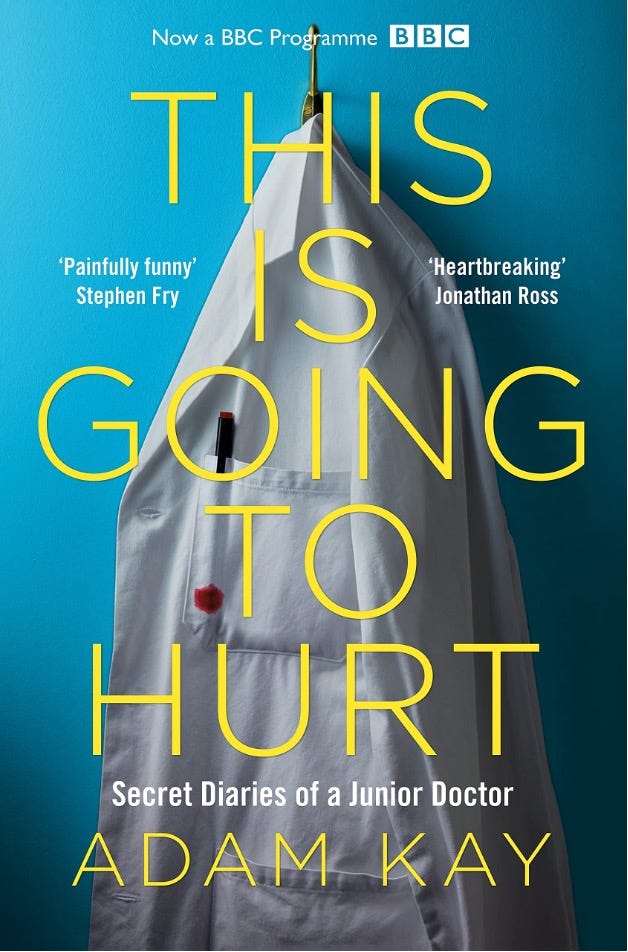Hi 👋 friends,
💡 One Insight
Healing vs. Productivity: Why Slowing Down Feels So Wrong
I had my second therapy session a couple of days before you’re reading this. I’m writing to you after spending two hours staring into space in emotional exhaustion—again. No book in hand, no journal, no deep reflection, just… silence. Nothingness. Rationally, I know this is what is needed after any emotionally charged encounter. Clarity usually comes from reflection after the fact. A lightbulb moment that pings when you least expect it. And still, the guilt came creeping in: "You should be getting something done." "You’re wasting time."
Sound familiar?
Here’s the trap I keep falling into—and I suspect many of you do too: we confuse healing with being productive. We want grief, burnout, identity shifts, or trauma processing to behave like to-do list items: manageable, efficient, preferably with a specified timeline. We want to go to therapy, feel something profound, and then get back to our inboxes 15 minutes later like we’re emotionally bulletproof.
But (sadly?) healing doesn’t work that way. You can’t prescribe a fixed timeline. You can’t confine it to a 50-minute appointment slot. It’s messy. Nonlinear. Sometimes quiet and still, other times erupting when you least expect it. It's not just inconvenient—it’s disorienting, especially for high-functioning people who are used to measuring their days in emails sent and tasks completed (in my case a tool of distraction and thinking to avoid feeling, but I’m a work in progress).
Here’s the paradox: real healing often leads to more sustainable productivity—but only when we stop treating it like a side hustle. Healing is deeper and slower than what the modern world wants from you. But its exactly what you need to do for you. Sometimes, doing nothing is the most honest and necessary thing you can do.
Who am I?
Hi 👋 friends, thank you so much for subscribing to my newsletter. I’m Elliott, a doctor and psychiatrist in the UK I make content about how to use an understanding of mental health 🧠. I hope that you will find this helpful in knowing how to use your mind as a tool of strength.
🧠 One Strategy
The “Minimum Effective Dose” Rule
Ask: What’s the least I can do today and still honour my healing?
🔁 One Mindset Shift
From “endless to-do list = failure” ➡️ “Healing is progress I can’t always see.”
📌 One Resource
"This Is Going to Hurt: Secret Diaries of a Junior Doctor" by Adam Kay is a bestselling memoir that offers a raw, darkly funny, and often heartbreaking insight into life as a junior doctor in the UK’s National Health Service (NHS). It’s based on the real diary entries Adam Kay kept during his years working in obstetrics and gynaecology, documenting the intense pressures, emotional toll, absurdities and burnout, that latter of which I can fully related to.
🎤 One Question For You
What’s something restful you could do this week FOR YOU (not for anyone else) that has no goal except helping you feel better?
Let’s Connect
▶️ YouTube: / drelliottcarthy
📸 Instagram: / dr.elliott.carthy
🎥 TikTok: / drelliottcarthy
👨💻 Linkedin: / elliottcarthy
🌍 My website: https://www.drelliottcarthy.com
Before you go…
I’d love to know if any of this resonated with you. Leave a comment if you’re comfortable sharing x
Do check out my reaction video on: Doctor Reacts to The Pitt






I got your newsletter for the first time today, right after a day and a half flare of one of my chronic illnesses. I remember feeling good last night because I, at least, got a lot of writing done... so yeah, rest is still hard, I still feel that I fail, or even that I'll get in trouble when I do. I like the idea of being a work in progress, though :) Thanks.
This is the most relatable aspect of the healing journey. I have major depression for 15 years (30F) and I always relied on being energetic to feel good. I was high-functioning; going to university then working out for 3 hours to come back home only to go to club. But what happened? After moving to another country to a safe place, every trauma that has been stored unfolded. I thought moving to my dream country(Switzerland) would fix most of my problems but I developed serious fibromylgia, IBS, migraine, hypothyroid and lymphedema which basically rendered me of my freedom of movement. My body said stop and made me stop. I have been using antidepressants which help a lot but also started therapy alongside. And I realized how my body has taken control to heal me, to make me realize how I depended on chaos and adrenaline to dissociate. Now, I have to take everything slow, even a slightest force of my body backfires with pain and swelling. It is so hard considering I am a MA candidate and also have to work. But you cannot win against your body and I am going with its flow and finally healing slowly...